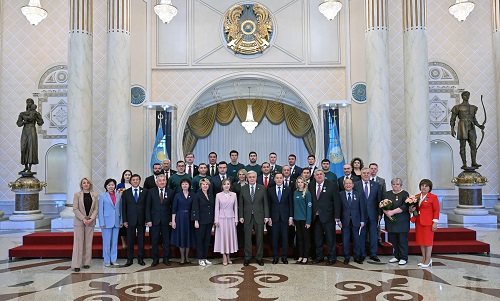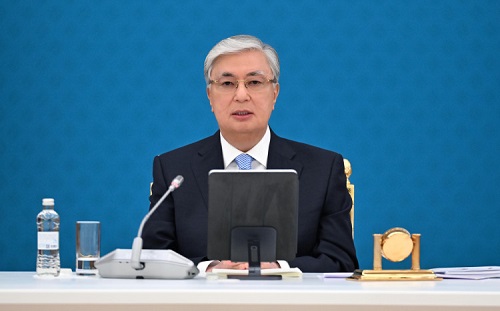What is needed to increase the contribution of science to the economy of Kazakhstan?
author Svetlana Borisova
At a recent meeting of the National Council for Science and Technology, the head of state said that science should contribute to the progressive development of the economy. Vyacheslav Dodonov, Doctor of Economic Sciences, chief researcher at the Institute of Philosophy, Political Science and Religious Studies, discusses why this is important and how to achieve the goal.
The high role that science plays in many countries as a driver of development in individual areas, especially high-tech ones, and the economy as a whole is generally recognized. However, in Kazakhstan its current condition does not allow it to act as such a locomotive. The head of state rightly noted that science has not been given due attention in our country for decades, and this has led to the loss of the previous scientific potential.
The ratio of R&D costs to GDP (sometimes this ratio is called the science intensity of GDP) in Kazakhstan is very far not only from the indicators of developed countries, but also from the world average. According to the World Bank, in 2021 in our republic this figure was 0.13%, compared with the world average of 2.71%. In Israel and South Korea it reached 5% or more, in many developed countries it is in the range of 1.4 – 3.5%. Moreover, Kazakhstan is inferior to most post-Soviet countries (Estonia - 1.75%, Lithuania - 1.11%, Russia - 1.09%, Latvia - 0.74%, Belarus - 0.46%, Ukraine - 0.29 %, Georgia - 0.25%, Moldova - 0.23%, Azerbaijan and Armenia - 0.21% each, Uzbekistan - 0.13%). Dozens of developing countries, including Asia and Africa, including Nigeria, Mali, Togo, Burundi, Sudan, Ethiopia, Mozambique and many others, are also ranked higher than us on this indicator.
It is obvious that Kazakhstan’s position on this parameter, which characterizes both the development of science and the relevance of its results in practice, does not correspond to either the country’s status in the international community or the scientific potential of the Republic of Kazakhstan. This means that there is a need to reconsider approaches to the organization of science, its integration with the economy, and the financing of this area.
Considering the relationship between science and economics, it should be noted that activities related to scientific research also make a direct contribution to GDP, since the corresponding research structures produce products, services, and generate income included in GDP. The results of this work are taken into account by statistics in such a type of economic activity as “professional, scientific and technical activities.” In 2023, this sector of the economy contributed 3.6% to Kazakhstan’s GDP, which indicates a fairly high role of research work in the national economy. At the same time, it should be noted that the share of this type of activity in GDP is steadily decreasing - in 2016 it was 5%, in 2017 - 4.6%, in 2018 - 4.4%, etc. d. This indicates an unfavorable trend in terms of the contribution of the scientific sector to the economy.
In general, the problem of increasing the role of science in the economy of Kazakhstan has remained extremely relevant over the past decades and needs to find solutions that are adequate to its complexity. The former scientific potential, the loss of part of which the head of state said, was developed and functioned in the conditions of a different socio-political formation - conditions that currently do not exist and will not exist again. Therefore, the solution to both the problems of science itself and its integration with the needs of the economy should lie in the plane of new approaches that correspond to the changed realities, which seems to be a rather difficult, but no less necessary task.
https://spik.kz/1838-chto-neobhodimo-dlja-uvelichenija-vklada-nauki-v-jekonomiku-kazahstana.html

